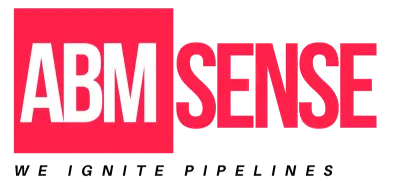What Are the Most Effective Event Marketing Strategies for B2B?
What works best when it comes to event marketing strategies for B2B? This is a critical question for businesses that operate in the arena of B2B marketing. Why? Because if you know what effective means when it comes to this version of the marketing mix, you can influence your bottom line. And here, we take a look at that question and its answer from various angles.
1. The Importance of Event Marketing in B2B
B2B event marketing isn’t just about amassing attendees; it’s about creating experiences that resonate. In a 2023 survey, the Event Marketing Institute found that 76% of B2B marketers consider in-person events pivotal to their overall marketing strategy. Moreover, 68% of marketers believe that event marketing ramps up brand awareness.
The events hold many forms and serve many purposes in B2B marketing:
- Networking: Events allow companies to interact in a direct manner with potential customers who are well-suited to their services or products.
- Establishing your company as an authority in the industry is achieved by hosting or participating in events.
- Event management can lead to the generation of excellent sources when effectively managed. Top event marketing managers are masters of lead generation.
In addition, the typical event participant is probably going to interact more meaningfully with your brand, having made the effort to attend. This deepens the potential for conversion.
Indeed, when it comes to the opportunity for actual, in-person interaction with attendees, the event space is still a top contender. Some 93% of marketers see this as a strong suit of events.
2. What Are the Most Effective Event Marketing Strategies for B2B?
Determining the most effective event marketing mechanisms is essential. Consider these event marketing strategies:
- Establish Obvious Aims: Distinguish what you hope to reach—whether it’s to secure potential customers, make your brand more recognizable, or keep your customers coming back for more. Aims lead the way when it comes to planning what to do and figuring out how to do it.
- Select the Appropriate Format: It could be webinars, trade shows, or roundtable discussions; the format should suit your audience’s liking.
- Utilize Technology: Employ event management software to simplify sign-up and messaging. Think about using live-streaming to increase your number of attendees.
- Valuable Content: Generate content that strikes a chord with your target audience. This could encompass anything from expert panels to workshops to keynote speeches.
Further, follow-up is essential in the wake of the event. According to a HubSpot study, 67% of marketers find post-event follow-up emails indispensable for leads to reach their maximum potential.
3. Engaging Your Audience Pre-Event
Prior to the event, it is vital to create a buzz. Using social media campaigns, email marketing, and blog posts can develop an exciting lead-up to the event. For instance, a big-name software company recently boosted attendance at one of their conferences by 40% through concentrated ads on social media promoting the event.
In addition, encourage your audience to register for the event early by giving them reasons to do so, like discounting the registration rate or offering exclusive access to some sort of premium content. Try using a countdown or teaser to build anticipation for the event and encourage your audience to share it within their networks.
4. Maximizing Engagement During the Event
Engagement is critical during an event to ensure greater success. Attendees should be kept involved and interested through the use of interactive technology—such as live polls, Q&A sessions, and even gamification. Almost 82% of attendees prefer a more interactive experience as opposed to a non-interactive one.
In addition, think about providing chances to network, such as with breakout sessions or facilitated meet-and-greet opportunities. Giving people time to have casual conversations can result in some impressive connections.
5. Post-Event Strategies to Enhance ROI
The work doesn’t stop once the event is over. It’s necessary to get feedback through surveys to understand how satisfied attendees were and to gain insight into their suggestions for future improvements. 87.5% of the event tech community associates post-event surveys as highly important, with the remaining 12.5% considering them necessary but not essential.
Along with this, make sure to examine the event data you collected. Note key figures like the number of attendees, how engaged they seemed, and how many leads you generated. You need this intel to comprehend which of your selected strategies worked as planned and which could use some reworking. Don’t forget attendee follow-up.
6. Leveraging Data to Optimize Future Events
This takes us back to the issue: What are the premier event marketing strategies for B2B? Data-fed insights can steer your choices. Utilize sign-up data to pinpoint your most voracious audience segments. Beyond that, keep an eye on digital chatter to suss out which content landed with the most attendees.
Analytics provides insights that can help you customize and adjust future events to truly fit the needs of your audience. This is, of course, the ultimate purpose of any event, marketing or otherwise. We call this purpose-driven event design.
In summation, mastering event marketing in the B2B sector demands a methodical manner of working. By putting into play effective strategies and never ceasing to optimize them by data, companies can utilize events to forge rich, valuable connections and amplify their marketing in the overall scheme of things.
Explore More on us
Discover insightful blogs on our Blogging Space, check our WordPress Visitor Identification Plugin, and learn more about Account-Based Marketing.


